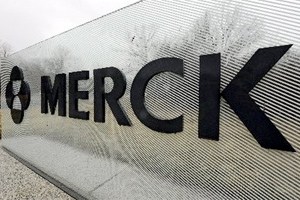 Merck & Co has agreed terms to bring a patent dispute centred on its cancer immunotherapy Keytruda to an end.
Merck & Co has agreed terms to bring a patent dispute centred on its cancer immunotherapy Keytruda to an end.
The US drugmaker has agreed to pay Bristol-Myers Squibb and Ono Pharmaceutical $625m to settle the patent infringement litigation – focusing on intellectual property in the area of PD-1 inhibitors – and will also pay a 6.5% royalty on sales of Keytruda (pembrolizumab) through to December 2023. A lower 2.5% royalty rate applies from January 2024 to December 2026.
The deal lays to rest any lingering risk of an interruption in Keytruda supply for patients and results in dismissal of all patent litigation filed against Merck by BMS and Ono. It is also an important result for BMS, which has had a run of ill news with Opdivo of late with Keytruda claiming a competitive advantage in key indications such as non-small cell lung cancer (NSCLC).
The upfront payment and royalties could amount to a fairly sizeable sum – assuming Keytruda meets expectations of becoming a $6bn-plus product by 2022 that would equate to $390m or more in that year alone. The initial payment and royalties will be shared between Ono and BMS with the Japanese firm getting a quarter share and BMS pocketing the remainder.
BMS and Ono filed suit against Merck shortly after Keytruda became the first drug to be approved in the US in September 2014, claiming Merck’s drug contravened a US patent covering the use of antibodies which bind to the PD-1 drug target in the US, some EU countries, Australia and Japan.
BMS and Ono were first to market with their Opdivo (nivolumab) PD-1 inhibitor, claiming approval in Japan in July of that year and launching it in September.
Merck’s chief executive Kenneth Frazier said the deal “eliminates uncertainty and enables us to continue to focus on Keytruda… which is already helping thousands of patients around the world and becoming a foundation for the treatment of cancer through our industry-leading clinical development programme”.
Frazier’s counterpart at BMS, Giovanni Caforio, said the settlement “validates the strong intellectual property rights we secured as the early innovators in the science of PD-1”.
It is also “a good decision for patients as it supports the continuation of ongoing research and maintains access to anti-PD-1 therapies for cancer patients around the world,” added Caforio.




